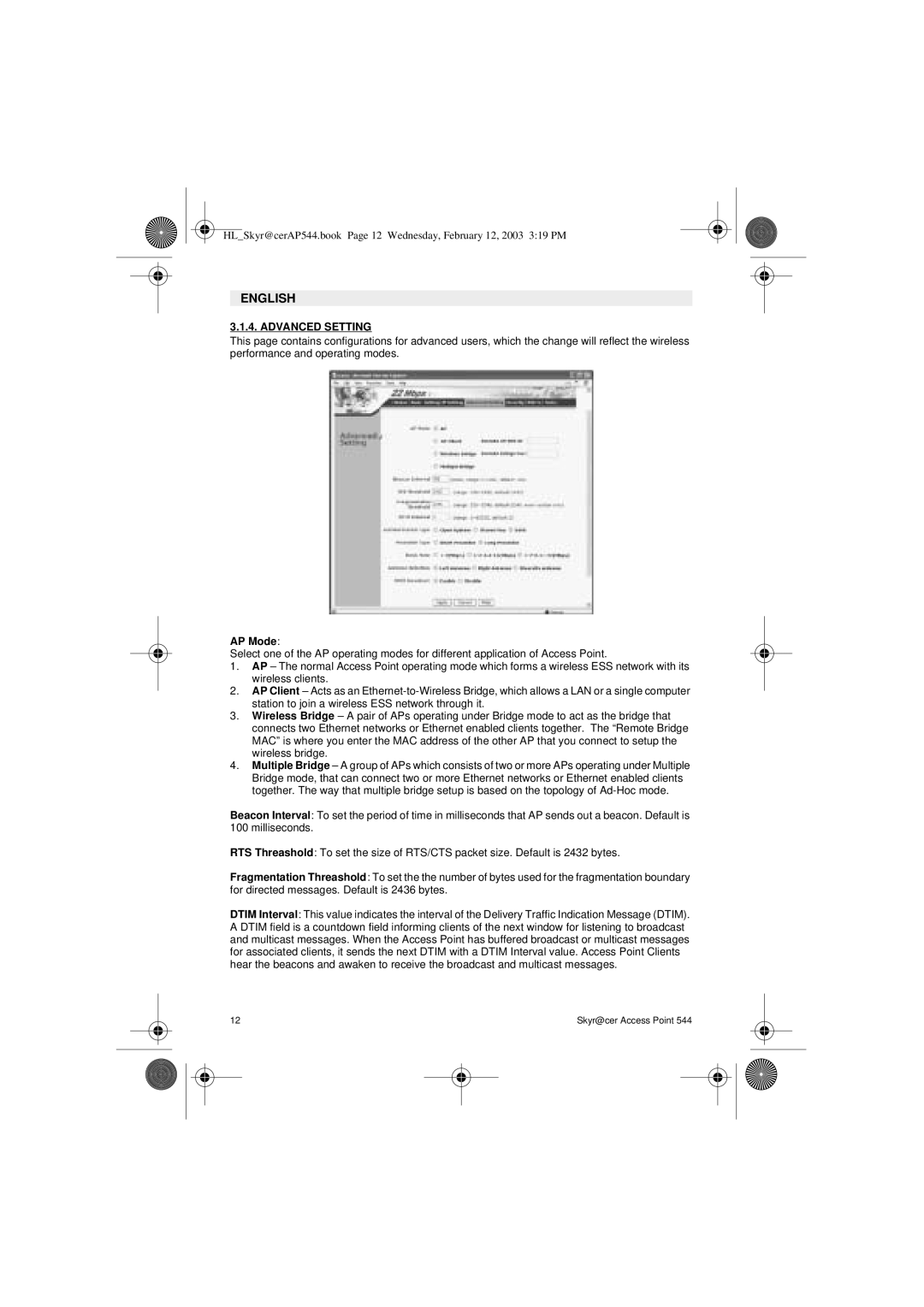
HL_Skyr@cerAP544.book Page 12 Wednesday, February 12, 2003 3:19 PM
ENGLISH
3.1.4. ADVANCED SETTING
This page contains configurations for advanced users, which the change will reflect the wireless performance and operating modes.
AP Mode:
Select one of the AP operating modes for different application of Access Point.
1.AP – The normal Access Point operating mode which forms a wireless ESS network with its wireless clients.
2.AP Client – Acts as an
3.Wireless Bridge – A pair of APs operating under Bridge mode to act as the bridge that connects two Ethernet networks or Ethernet enabled clients together. The “Remote Bridge MAC” is where you enter the MAC address of the other AP that you connect to setup the wireless bridge.
4.Multiple Bridge – A group of APs which consists of two or more APs operating under Multiple Bridge mode, that can connect two or more Ethernet networks or Ethernet enabled clients together. The way that multiple bridge setup is based on the topology of
Beacon Interval: To set the period of time in milliseconds that AP sends out a beacon. Default is 100 milliseconds.
RTS Threashold: To set the size of RTS/CTS packet size. Default is 2432 bytes.
Fragmentation Threashold: To set the the number of bytes used for the fragmentation boundary for directed messages. Default is 2436 bytes.
DTIM Interval: This value indicates the interval of the Delivery Traffic Indication Message (DTIM). A DTIM field is a countdown field informing clients of the next window for listening to broadcast and multicast messages. When the Access Point has buffered broadcast or multicast messages for associated clients, it sends the next DTIM with a DTIM Interval value. Access Point Clients hear the beacons and awaken to receive the broadcast and multicast messages.
12 | Skyr@cer Access Point 544 |
